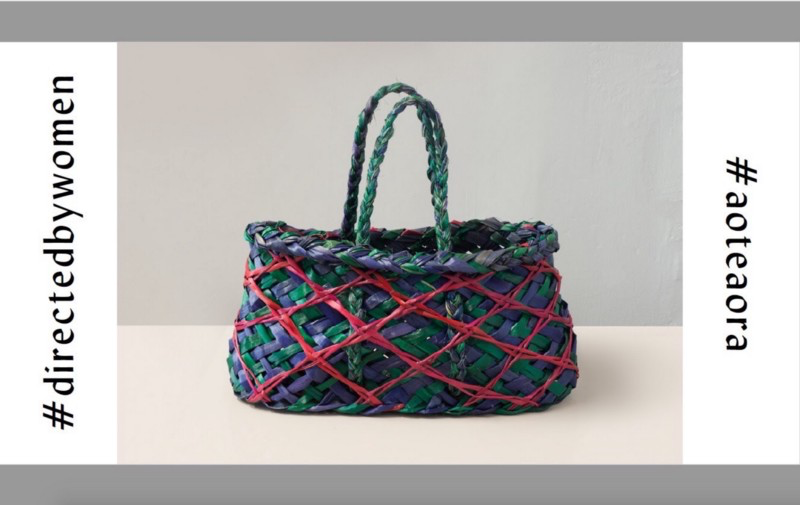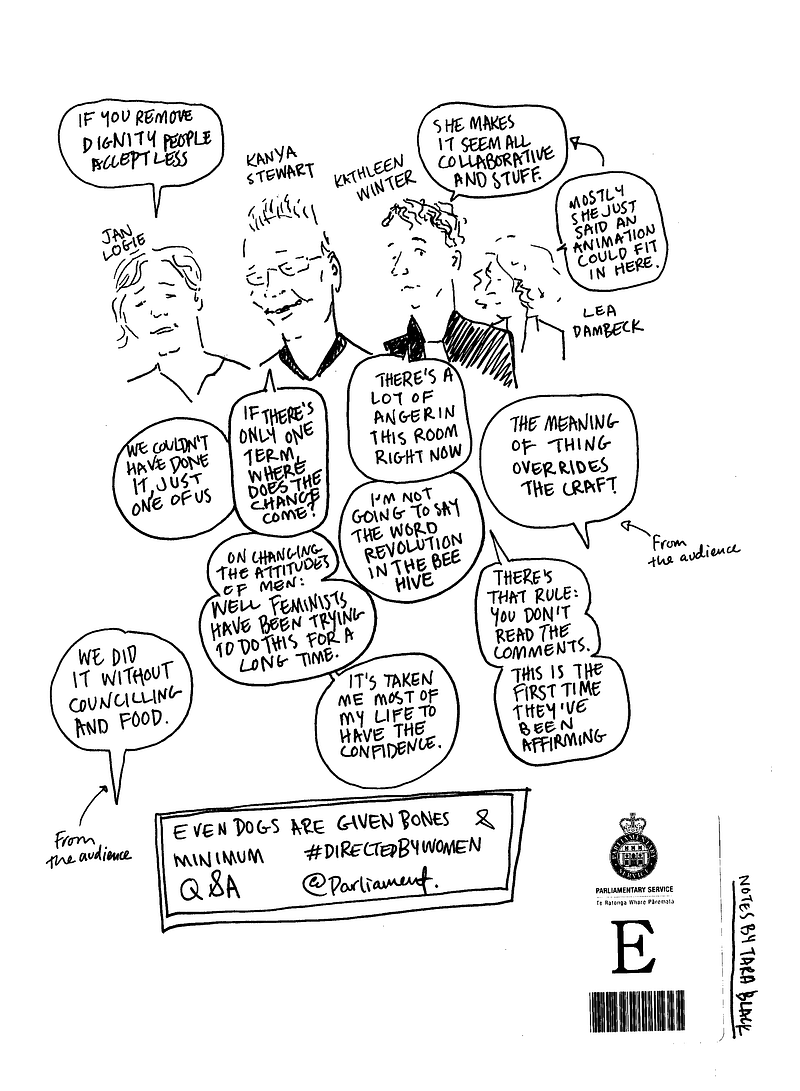
Thanks to the Associate Minister for Arts, Culture & Heritage, Grant Robertson, and to Jan Logie, Under-Secretary, Parliamentary Under-Secretary for Justice (Sexual and Domestic Violence Issues), Minimum screened in Parliament’s Beehive Theatrette during last year’s #directedbywomen, following Kanya Stewart’s classic Even Dogs Are Given Bones (1982, for Dyke Productions and Auckland Women’s Community Video), about the women who occupied the Rixen clothing factory in Levin when the owner decided to close the factory but wouldn’t pay them redundancy.

It was a beautiful thing when Grant Robertson introduced the evening and asked the Even Dogs Are Given Bones women to stand up so we could applaud them.And beautiful to watch the two works — made almost 40 years apart — together; and to watch all the Minimum episodes at once, in a crowded cinema.
As well as some of the Rixen women, the audience included some of the participants in Minimum; and many participants in the Women’s Studies Association (WSA) annual conference. Because I’d become aware that academic women often choose their reading with regard to an author’s gender but not their viewing, I planned the Q & A to be a discussion between Kanya and Kathleen, to spotlight them as women directors, hear about their processes and experiences and inspire some WSA women to look out for work #directedbywomen. But I hadn’t taken into account the effects of the work.
I now believe that Even Dogs Are Given Bones and Minimum share a characteristic with Ava DuVernay’s powerful When They See Us, currently on Netflix. The New Yorker described When They See Us as a ‘ bleak, beautiful drama’ whose ‘main concern…is empathy. Not a syrupy, manipulative empathy but a rigorous, corrective one’. I think the responses to those screenings in the Beehive Theatrette demonstrated that Kanya’s and Kathleen’s works were also concerned with ‘rigorous, corrective’ empathy. And because so many of the women represented onscreen were in the audience, I now wish I’d thought to choreograph the Q & A more effectively and to have them onstage too.
Regardless, Kanya and Kathleen — with Lea Dambeck, one of her animators — shone. The audience participated energetically and Tara Black, who makes comics and ‘aspires to be a professional notetaker’ documented the discussion. I loved the comments Tara Black recorded. And am thinking today about one of them: ‘the meaning of the thing overrides the craft’, which I understand as ‘the thing’s relevance’.
 |
| Tara Black's notes |
Melanie Reid’s recent ‘video story’, Uplift, about the mechanisms behind one example of ‘NZ’s own taken generation[s]’, much of it shot on family phones as it happened, is another example of a storyteller’s ‘rigorous, corrective empathy’. Powerful, relevant, storytelling grabs us whether it’s recorded as a film or television or web series or on our phones; and whether we watch it on a phone or other device or in a cinema. But it’s a pretty special joy to watch this kind of work in a cinema followed by a Q & A with directors and other participants? It certainly was that night at the Beehive.

Comments
Post a Comment